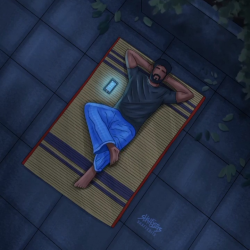

Hello everyone and thanks for reading by!
Brain is a complex organ that commands our body to perform various functions. Brain controls our hunger, emotion, vision, memory, touch, breathing and what not. Our brain can concentrate, construct and organise different sort of things. Even the basic schemas are easily stores in our brain.
The basic division of brain is into three parts:
2. midbrain
3. hindbrain
Sleep is not simple as it seems, it’s a complex process. It even plays a really important role in regulating our moods, appetite, etc. Can our brain sleep, when we sleep? The answer obviously is a big No! The capacity of rest has perplexed researchers for millennia, yet current exploration is giving new insights regarding how it helps both the psyche and body. Rest serves to reenergize the body's cells, clear waste from the mind, and backing learning and memory. It even assumes essential parts in managing state of mind, hunger and charisma.
Resting or sleeping is a vital piece of our life, and as examination shows, it is unbelievably mind boggling. The cerebrum creates two particular sorts of rest—slow-wave rest (SWS), known as profound rest, and fast eye development (REM), additionally called dreaming rest. The majority of the resting we do is of the SWS assortment, portrayed by enormous, slow mind waves, loosened up muscles and slow, profound breathing, which might help the cerebrum and body to recover in the wake of a monotonous day.
when we sleep, brain doesn’t sleep too. At the point when we nod off, the cerebrum doesn't just go disconnected, as inferred by the normal expression "out cold." Instead a progression of profoundly coordinated occasions takes care of the mind in stages. Actually rest begins in the mind regions that produce SWS. Researchers currently have substantial proof that two gatherings of cells—the ventrolateral preoptic core in the nerve center and the parafacial zone in the mind stem—are engaged with provoking SWS. At the point when these cells switch on, it triggers a deficiency of awareness.
We do realize that a little gathering of cells in the mind stem, called the subcoeruleus core, controls REM rest. At the point when these cells become harmed or sick, individuals don't encounter the muscle loss of motion related with REM rest, which can prompt REM rest conduct problem—a genuine condition wherein the burdened brutally showcase their fantasies.
Thankyou, Keep supporting and let me know your views on this.✨












